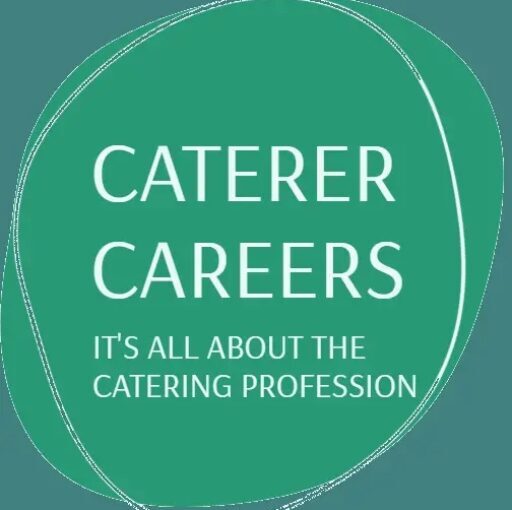
Image: Blue Diamond Gallery
1. Understanding the Industry Landscape
Are you considering a career in the food, hospitality, or non-hospitality sectors? If so, navigating the job market can be a daunting task. But fear not, as I am here to guide you through the “7 Guidelines For Food, Hospitality, And Non-Hospitality Job Seekers.”
Understanding the industry landscape is crucial for success in these competitive fields. By staying informed about trends, market demands, and emerging opportunities, you can align your skills and qualifications to stand out to potential employers. Let’s dive into the first guideline to kickstart your journey to a fulfilling career.
2. Crafting a Targeted Resume
Crafting a targeted resume is a pivotal step in securing a job in the vibrant food, hospitality, or non-hospitality sectors. Your resume serves as your first impression on potential employers, showcasing your skills, experiences, and achievements. Tailoring your resume to highlight relevant information that aligns with the specific requirements of the industry is vital in capturing the attention of hiring managers.
Tailoring Your Resume
When crafting your resume, make sure to tailor it to each job application. Highlighting your relevant skills, experiences, and achievements that directly correlate with the job requirements will make you stand out from the competition. By customizing your resume for each position, you demonstrate your commitment and suitability for the role, increasing your chances of being selected for an interview.
Showcasing Your Accomplishments
In addition to listing your work experience and educational background, be sure to showcase your accomplishments. Whether it’s exceeding sales targets, implementing successful projects, or receiving accolades for exceptional customer service, highlighting your achievements demonstrates your value as a potential employee. Quantifying your accomplishments with numbers and statistics can further add credibility to your resume.
Utilizing Keywords
To increase the chances of your resume getting noticed by applicant tracking systems (ATS) and hiring managers, incorporate relevant keywords from the job description. By using industry-specific terminology and phrases, you can ensure that your resume aligns with the employer’s requirements. Strategically placing keywords throughout your resume can help you pass through the initial screening process and land you an interview opportunity.
3. Building a Strong Professional Network
Building a strong professional network is essential for job seekers in the food, hospitality, and non-hospitality sectors. Networking can open doors to new opportunities, provide valuable insights, and connect you with industry experts. Here are some key points to keep in mind as you embark on expanding your network:
- Attend industry events and conferences to meet like-minded professionals and potential employers.
- Join relevant professional associations or online networking groups to stay connected with industry trends.
- Leverage social media platforms such as LinkedIn to showcase your skills and connect with industry professionals.
Networking is not just about making contacts; it’s about building relationships that can benefit your career in the long run. By actively engaging with others in the industry, you can gain valuable advice, mentorship, and even job leads. Remember, networking is a two-way street, so be sure to offer assistance and support to your connections as well.
In today’s competitive job market, having a strong professional network can give you a competitive edge and help you stand out to potential employers. So, don’t underestimate the power of networking in your job search process. Invest time and effort into building and nurturing your network, and you may find that doors open to exciting opportunities you never knew existed.
4. Gaining Practical Experience
As you embark on your journey toward a career in the food, hospitality, or non-hospitality sectors, gaining practical experience is a pivotal step. Here are some key points to consider:
- Internships and Part-time Jobs: Securing internships or part-time positions in relevant organizations can provide valuable hands-on experience. These opportunities allow you to apply your skills in real-world settings and gain insights into the industry dynamics.
- Volunteering: Volunteering at events, community gatherings, or food-related initiatives can also help you build practical experience. This not only showcases your commitment to the industry but also allows you to network and learn from seasoned professionals.
- On-the-Job Training: Taking advantage of on-the-job training programs offered by employers can further enhance your skills and knowledge. Be proactive in seeking opportunities to shadow experienced professionals and learn from their expertise.
- Seek Diverse Experiences: It’s beneficial to seek diverse experiences within the industry. Whether it’s working in different departments, exploring various roles, or gaining exposure to different types of establishments, diversifying your practical experience can broaden your perspective and skill set.
By actively seeking out practical experiences, you can not only enhance your skills and knowledge but also demonstrate your dedication and passion for the field. Remember, every opportunity to learn and grow adds value to your professional journey. Keep an open mind, be proactive, and embrace the challenges and rewards that come with gaining practical experience in the food, hospitality, or non-hospitality sectors.
5. Staying Updated with Industry Standards
Staying informed about industry standards and regulations is essential in the fast-paced world of food, hospitality, and non-hospitality sectors.
By familiarizing yourself with local and national regulations, as well as industry best practices, you showcase your professionalism and dedication to your craft. This knowledge not only helps you perform your job effectively but also ensures that you comply with legal requirements, which is crucial in maintaining a successful career in these industries.
Keeping current with industry standards also demonstrates your commitment to excellence and continuous improvement. By staying informed about the latest trends, technologies, and practices, you show potential employers that you are proactive and forward-thinking in your approach to your career. Adapting to changes in the industry is key to staying relevant and competitive in the evolving landscape of food, hospitality, and non-hospitality sectors.
Moreover, staying updated with industry standards allows you to provide a high level of service to customers and clients. By understanding and implementing best practices in areas such as food safety, customer service, and operational efficiency, you can ensure that you deliver exceptional results and meet the expectations of your target audience. This attention to detail and commitment to quality will set you apart from others in the industry.
In conclusion, staying informed about industry standards is a fundamental aspect of building a successful career in the food, hospitality, and non-hospitality sectors. By demonstrating your knowledge of regulations, best practices, and emerging trends, you position yourself as a valuable asset to potential employers and clients.
Continuously updating your skills and practices ensures that you remain competitive and adaptable in an ever-changing industry, setting you on a path to long-term success and fulfillment in your chosen field.
6. Developing Essential Soft Skills
Soft skills are a crucial component of success in the food, hospitality, and non-hospitality industries. While technical abilities are essential, mastering soft skills can set you apart from the competition.
Communication skills play a vital role in these sectors, whether you are interacting with customers, collaborating with colleagues, or resolving conflicts. Being able to articulate your thoughts effectively and listen actively can lead to smoother operations and enhanced customer experiences.
Teamwork Makes the Dream Work
In these fast-paced industries, teamwork is key to achieving success. Employers value individuals who can collaborate effectively with others, contribute ideas, and support their team members. By developing your teamwork skills, you can create a positive work environment, foster strong relationships, and accomplish tasks more efficiently. Remember, teamwork makes the dream work, and your ability to work well with others can be a game-changer in your career.
Problem-Solving and Adaptability
The ability to think on your feet and adapt to changing circumstances is highly prized in the food, hospitality, and non-hospitality sectors. Developing strong problem-solving skills can help you navigate challenges, resolve issues quickly, and maintain high standards of service. Additionally, being adaptable and flexible in your approach can demonstrate your ability to thrive in dynamic environments and embrace new opportunities for growth and learning.
Customer Service Excellence
In these customer-centric industries, providing exceptional service is paramount. Developing strong customer service skills can help you build rapport with guests, anticipate their needs, and exceed their expectations. By focusing on delivering memorable experiences, you can create loyal customers who will return and recommend your services to others. Happy customers are the key to success in the food and hospitality industry.
Self-Management and Time Management
In demanding environments like the food and hospitality sectors, self-management and time management skills are essential. Being able to prioritize tasks, stay organized, and meet deadlines can help you stay on top of your responsibilities and deliver results effectively.
By honing your self-management skills, you can demonstrate your ability to handle pressure, stay focused, and achieve your goals efficiently. Remember, effective time management is the cornerstone of success in any industry.
7. Embracing Continuous Learning and Adaptation
In the ever-evolving food, hospitality, and non-hospitality industries, embracing continuous learning and adaptation is essential for staying ahead of the curve. To thrive in these dynamic fields, job seekers must be proactive in expanding their knowledge and skills to keep up with changing trends and technologies.
- Stay Curious: Curiosity is a powerful driving force for learning and growth. Embrace a mindset of curiosity and be open to exploring new ideas, concepts, and techniques within the industry. Curiosity can lead to innovative solutions and fresh perspectives that set you apart from the competition.
- Seek Feedback: Feedback is a valuable tool for personal and professional development. Actively seek feedback from mentors, colleagues, and supervisors to learn from your experiences and improve your performance. Constructive feedback can help you identify areas for growth and guide you toward continuous improvement.
- Attend Training and Workshops: Participating in industry-specific training programs and workshops is a great way to enhance your skills and knowledge. Look for opportunities to expand your expertise, whether it’s through online courses, certification programs, or hands-on workshops. Investing in your education shows employers your commitment to self-improvement.
- Adapt to Change: The ability to adapt to change is a key skill in today’s fast-paced job market. Be flexible and open-minded when faced with new challenges or opportunities. Embrace change as a chance for growth and development, and be willing to pivot your strategies and approaches as needed to navigate shifting industry landscapes.
Continuous learning and adaptation are not just buzzwords in the food, hospitality, and non-hospitality industries—they are essential components of a successful career.
By proactively seeking new knowledge, embracing feedback, attending training sessions, and adapting to change, you can position yourself as a resilient and forward-thinking professional in these competitive fields. Stay curious, seek feedback, attend workshops, and be ready to adapt to whatever comes your way—your commitment to growth will set you apart and propel you toward career success.
8. Showcasing a Positive Attitude and Willingness to Learn
When embarking on your journey in the food, hospitality, or non-hospitality industries, one of the key guidelines to abide by is to showcase a positive attitude and a willingness to learn.
Employers in these dynamic fields are drawn to individuals who exude enthusiasm, eagerness, and a thirst for knowledge. By approaching each opportunity with a can-do attitude and a readiness to expand your skills, you not only enhance your own growth but also leave a lasting impression on potential employers.
Having a positive attitude not only benefits your professional development but also fosters a collaborative and supportive work environment. When you exude positivity, you inspire those around you and contribute to a culture of teamwork and camaraderie.
Employers value team players who uplift others, tackle challenges with optimism, and approach tasks with a can-do spirit. By showcasing your positive demeanor, you demonstrate your ability to adapt to diverse work settings and navigate challenges with resilience.
In the fast-paced and ever-evolving food and hospitality industries, a positive attitude serves as a beacon of light amidst the hustle and bustle. By maintaining a sunny disposition, you can weather any storm and approach obstacles with a solutions-oriented mindset.
Employers seek individuals who can remain steadfast in the face of adversity, exude resilience, and radiate positivity even in challenging situations. Your optimistic outlook will not only elevate your own performance but also contribute to a harmonious work environment.
In addition to a positive attitude, a genuine willingness to learn is a trait that can set you apart in the competitive job market. Employers value individuals who are open to new experiences, eager to acquire new skills, and adaptable to change.
By demonstrating your eagerness to learn, you showcase your growth mindset and your commitment to professional development. Embrace each opportunity as a chance to expand your knowledge and skills, and watch as doors of opportunity swing open in front of you.
In conclusion, showcasing a positive attitude and a willingness to learn are essential to a successful career journey in the food, hospitality, and non-hospitality industries.
By embodying these traits, you not only enhance your own growth and development but also position yourself as a valuable asset to potential employers. Remember, a can-do attitude and a thirst for knowledge can pave the way for a fulfilling and rewarding career in these vibrant and dynamic sectors. Stay positive, stay curious, and watch as your career flourishes.
9. Highlighting Effective Communication Skills
When it comes to thriving in the food and hospitality industry, effective communication skills are absolutely essential. Whether you’re working in a bustling kitchen, interacting with customers, or managing a team, the ability to communicate clearly and professionally can make or break your success.
By honing your communication skills, you can ensure that tasks are completed efficiently, conflicts are resolved effectively, and customer satisfaction is maintained at a high level.
Having strong communication skills goes beyond just speaking clearly; it also involves active listening, empathy, and the ability to convey information in a way that is easily understood by others. In a fast-paced environment like the food and hospitality industry, being able to communicate with precision and clarity is paramount.
This skill not only enhances your own performance but also contributes to a positive work environment where teamwork and collaboration flourish.
Employers in the food and hospitality industry value employees who can communicate effectively with colleagues, customers, and supervisors.
By showcasing your communication skills during the hiring process, you demonstrate your ability to handle challenging situations, provide excellent customer service, and work well within a team. Whether it’s through your resume, cover letter, or in-person interviews, highlighting your communication skills can set you apart from other job seekers and impress potential employers.
Remember, effective communication is a two-way street. It’s not just about speaking clearly; it’s also about listening actively and responding thoughtfully. By mastering the art of communication, you can navigate the complexities of the food and hospitality industry with ease and confidence. So, practice your communication skills, be open to feedback, and show employers that you have what it takes to excel in this dynamic and rewarding field.
10. Demonstrating a Strong Work Ethic and Passion for the Industry
In conclusion, navigating the job market in the food, hospitality, and non-hospitality sectors can be challenging, but by following these 7 guidelines, you can set yourself up for success.
Understanding the industry landscape, crafting a targeted resume, building a strong professional network, gaining practical experience, staying updated with industry standards, developing essential soft skills, and embracing continuous learning and adaptation are key steps to stand out to potential employers.
By showcasing a positive attitude, willingness to learn, effective communication skills, and a strong work ethic, you can demonstrate your passion for the industry and set yourself apart from other job seekers. Remember, success in these competitive fields requires dedication, hard work, and a commitment to ongoing growth and development. Good luck on your job search journey!





